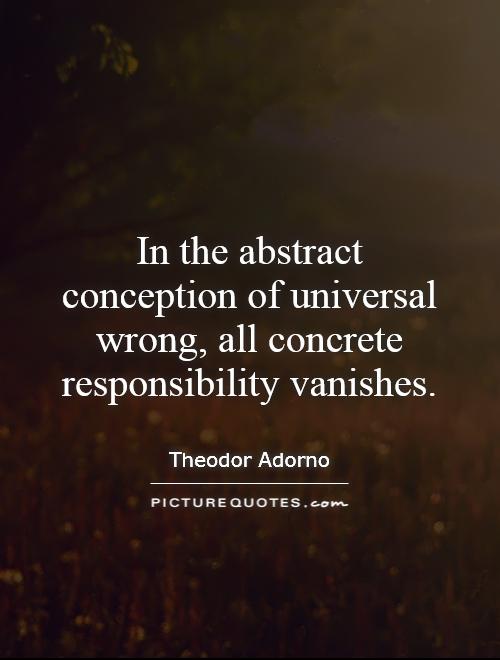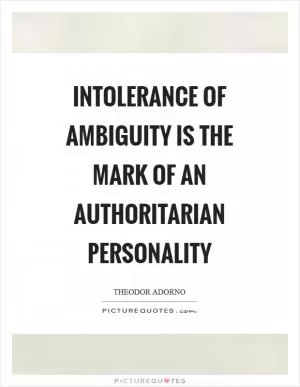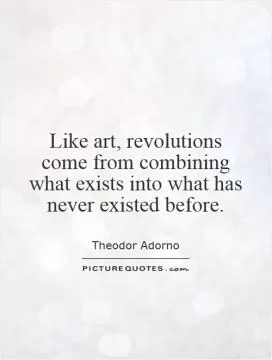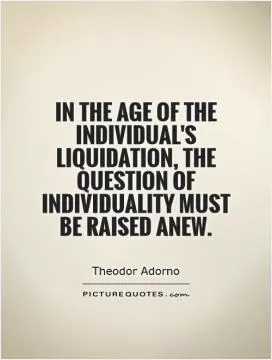In the abstract conception of universal wrong, all concrete responsibility vanishes

In the abstract conception of universal wrong, all concrete responsibility vanishes
The quote "In the abstract conception of universal wrong, all concrete responsibility vanishes" by Theodor Adorno speaks to the idea that when we think about wrongdoing in a broad, general sense, we often lose sight of the individual actions and responsibilities that contribute to these larger injustices. Adorno, a German philosopher and sociologist, was known for his critical theory and analysis of society, culture, and politics. In this quote, he is highlighting the danger of viewing wrongdoing as a distant, impersonal concept rather than recognizing the specific actions and choices that lead to harm and injustice.When we think about universal wrongs such as poverty, racism, or environmental destruction, it can be easy to feel overwhelmed and powerless. These issues seem so vast and complex that it can be tempting to disengage and avoid taking responsibility for our own role in perpetuating these injustices. Adorno is cautioning against this mindset, reminding us that every individual has a part to play in creating a more just and equitable society.
By focusing on abstract notions of universal wrong, we can become disconnected from the concrete actions and decisions that contribute to these larger problems. It is easy to blame society or external forces for the injustices we see around us, but Adorno is urging us to look inward and consider how our own choices and behaviors may be contributing to these issues. Only by acknowledging our individual responsibility and taking action to address these wrongs can we hope to create meaningful change.
Adorno's quote also speaks to the importance of holding individuals and institutions accountable for their actions. When we view wrongdoing as a universal concept, it can be easy to excuse or overlook the specific behaviors that lead to harm and injustice. By recognizing the concrete responsibilities that each of us holds, we can work towards a more just and equitable society where accountability is valued and upheld.
Overall, Adorno's quote serves as a powerful reminder of the importance of individual responsibility in the face of universal wrongs. By acknowledging our own role in perpetuating injustice and taking action to address these issues, we can work towards a more just and equitable society for all.












 Friendship Quotes
Friendship Quotes Love Quotes
Love Quotes Life Quotes
Life Quotes Funny Quotes
Funny Quotes Motivational Quotes
Motivational Quotes Inspirational Quotes
Inspirational Quotes